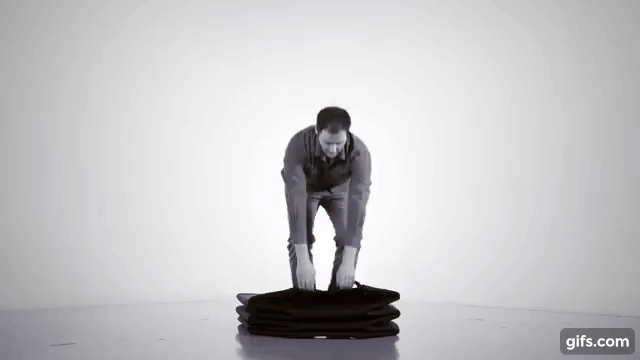Home Team
The Happy Madison deal with Netflix has reached a very unusual stop on its journey through the history of the streaming giant. Adam Sandler’s company often alternates vehicles for the superstar like “Hubie Halloween” (one of their better movies) with offerings that center one of his BFFs like David Spade or Kevin James. The latter gets to lead the abysmal “Home Team,” a new entry in the bottom tier of the production company, a tone-deaf dramedy that’s allegedly based on the true story of Sean Payton’s suspended year after Bountygate although that would imply that there’s a single manipulative beat of this movie that feels “true.” I’m not one to judge a film based on concept—it’s always about the execution more than the premise. However, turning one of the NFL’s most violent and notorious scandals into a family film about getting to love football again challenges this belief. Could a good film have come out of this narrative kickoff? Maybe, but it has a high degree of difficulty, and it sure isn’t “Home Team,” one that starts with a bad taste in your mouth that only gets more rancid. James plays the legendary New Orleans coach, who, of course, is introduced on the fake sideline as he wins the Super Bowl in 2010. “Home Team” introduces Payton as a soft-spoken genius with a driven desire to win. All he does is win games and chew gum. He may value the sport more than he should but that’s his only flaw and the film you’re going to watch will basically make him perfect, right? Of course, almost every detail of Bountygate is quickly dispensed or ignored, including the fact that it was reportedly taking place during that 2010 season. The quick version is that the New Orleans Saints were paying bounties to defensive players for causing injuries to members of the other team. Roger Goodell suspended the Defensive Coordinator indefinitely and sent Sean Payton home for a season. While he denied involvement, and the film has the nerve to give him a “but the buck stops with me whether I knew or not” speech to stay at least a little neutral, the league determined through an investigation that Payton did know about the system, which he steadfastly denied. Listen, “Home Team” doesn’t have to be a "Moneyball"-style expose about Bountygate but setting it up as image rehab for one of its major players gives it a shaky, uncertain foundation from the beginning. James’ Payton returns to his North Texas hometown and reunites with his son Connor (Tait Blum), discovering that the boy is on one of the worst football teams in the region. Being a sports animal, Payton can’t just watch the horror unfold, and ends up coaching the team to a successful season, learning how to prioritize relationships and people over winning. “Home Team” is the story of a man who turned a punishment into a learning lesson, but it never feels more than superficially interested in the very idea that that man had to be caught (or at least accused of) breaking the rules to spend any time with his own son. It’s a complex idea in a family sports movie structure that avoids complexity by its very nature. In an early scene, Payton tells the boys one obvious defensive play, they score their first TD of the season, and Payton smiles like he’s feeling the joy of sports for the first time ever as the music soars. Really? It’s almost a parody of bad sports movies, which is harmless enough unless you consider the allegation that it’s all true. NONE of it feels true. Ignoring everything that NFL fans bring to “Home Team,” the real problem is that it’s just poorly constructed on its own terms. Pretend it’s not a “true story” and it’s still a shallow representation of sports, parenthood, and comedy, with almost no laughs. Minor struggles are easy to overcome, characters are given one characteristic to play poorly, and the often-charming James is forced to capture the dull stoicism of the “head coach” in the most bland manner possible. And then there’s the Rob Schneider character, a cartoon counterpoint to Payton who is now with the coach’s ex-wife, a character designed to be the most broad comic relief. Schneider touts vegan ice cream, wears a Snuggie to the game, and sports a man bun. He’s a walking list of a writer’s idea of “the opposite of any NFL coach” and it’s just insultingly unfunny. As the film reaches its thin climax, there’s a scene in which the whole team that Payton is coaching ends up projectile vomiting during a game. I felt similarly nauseous but for different reasons. On Netflix today.


The Happy Madison deal with Netflix has reached a very unusual stop on its journey through the history of the streaming giant. Adam Sandler’s company often alternates vehicles for the superstar like “Hubie Halloween” (one of their better movies) with offerings that center one of his BFFs like David Spade or Kevin James. The latter gets to lead the abysmal “Home Team,” a new entry in the bottom tier of the production company, a tone-deaf dramedy that’s allegedly based on the true story of Sean Payton’s suspended year after Bountygate although that would imply that there’s a single manipulative beat of this movie that feels “true.” I’m not one to judge a film based on concept—it’s always about the execution more than the premise. However, turning one of the NFL’s most violent and notorious scandals into a family film about getting to love football again challenges this belief. Could a good film have come out of this narrative kickoff? Maybe, but it has a high degree of difficulty, and it sure isn’t “Home Team,” one that starts with a bad taste in your mouth that only gets more rancid.
James plays the legendary New Orleans coach, who, of course, is introduced on the fake sideline as he wins the Super Bowl in 2010. “Home Team” introduces Payton as a soft-spoken genius with a driven desire to win. All he does is win games and chew gum. He may value the sport more than he should but that’s his only flaw and the film you’re going to watch will basically make him perfect, right? Of course, almost every detail of Bountygate is quickly dispensed or ignored, including the fact that it was reportedly taking place during that 2010 season. The quick version is that the New Orleans Saints were paying bounties to defensive players for causing injuries to members of the other team. Roger Goodell suspended the Defensive Coordinator indefinitely and sent Sean Payton home for a season. While he denied involvement, and the film has the nerve to give him a “but the buck stops with me whether I knew or not” speech to stay at least a little neutral, the league determined through an investigation that Payton did know about the system, which he steadfastly denied.
Listen, “Home Team” doesn’t have to be a "Moneyball"-style expose about Bountygate but setting it up as image rehab for one of its major players gives it a shaky, uncertain foundation from the beginning. James’ Payton returns to his North Texas hometown and reunites with his son Connor (Tait Blum), discovering that the boy is on one of the worst football teams in the region. Being a sports animal, Payton can’t just watch the horror unfold, and ends up coaching the team to a successful season, learning how to prioritize relationships and people over winning. “Home Team” is the story of a man who turned a punishment into a learning lesson, but it never feels more than superficially interested in the very idea that that man had to be caught (or at least accused of) breaking the rules to spend any time with his own son.
It’s a complex idea in a family sports movie structure that avoids complexity by its very nature. In an early scene, Payton tells the boys one obvious defensive play, they score their first TD of the season, and Payton smiles like he’s feeling the joy of sports for the first time ever as the music soars. Really? It’s almost a parody of bad sports movies, which is harmless enough unless you consider the allegation that it’s all true. NONE of it feels true.
Ignoring everything that NFL fans bring to “Home Team,” the real problem is that it’s just poorly constructed on its own terms. Pretend it’s not a “true story” and it’s still a shallow representation of sports, parenthood, and comedy, with almost no laughs. Minor struggles are easy to overcome, characters are given one characteristic to play poorly, and the often-charming James is forced to capture the dull stoicism of the “head coach” in the most bland manner possible. And then there’s the Rob Schneider character, a cartoon counterpoint to Payton who is now with the coach’s ex-wife, a character designed to be the most broad comic relief. Schneider touts vegan ice cream, wears a Snuggie to the game, and sports a man bun. He’s a walking list of a writer’s idea of “the opposite of any NFL coach” and it’s just insultingly unfunny.
As the film reaches its thin climax, there’s a scene in which the whole team that Payton is coaching ends up projectile vomiting during a game. I felt similarly nauseous but for different reasons.
On Netflix today.






















